The dirty habits we all do EVERY DAY that are harming our health
How dirty are you? You'll be surprised by just how bad these habits are...

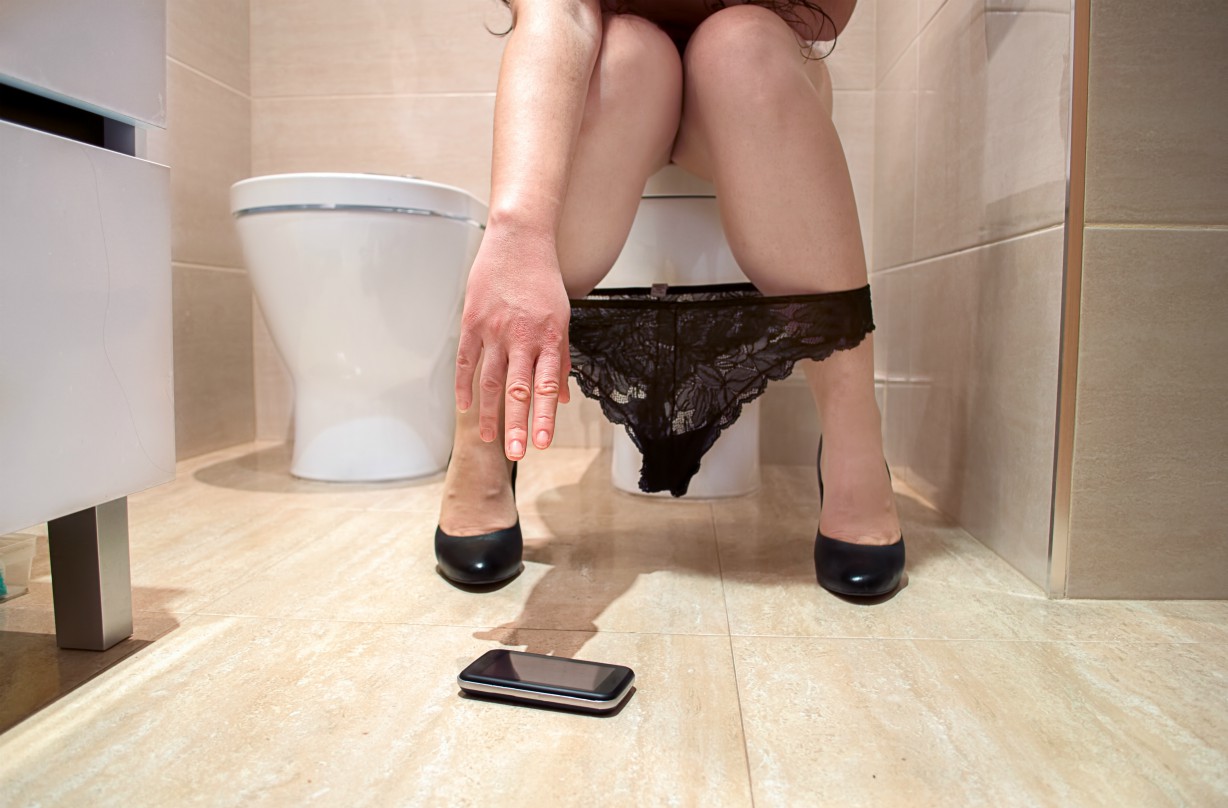
Parenting advice, hot topics, best buys and family finance tips delivered straight to your inbox.
You are now subscribed
Your newsletter sign-up was successful
They're the habits that plenty of us have, from nail biting to scrolling through Facebook while we 'relieve' ourselves, but could they be putting our good health in danger?
We've rounded up the daily dirty habits that are the worst for us, and it might just be enough to put you off doing them for good...
Wearing your shoes indoors
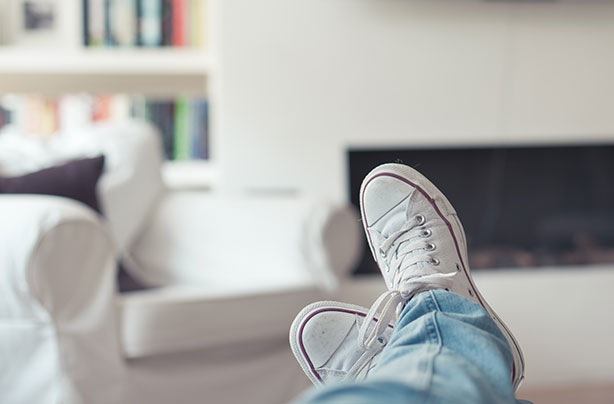
Brace yourself for possibly the grossest fact yet, because a recent study has shown that there are an estimated 421,000 bacteria on our shoes.
The research, conducted by the University of Arizona, showed that these bugs can include E.coli, which can play havoc with your digestive system, Serratia ficaria, which causes respiratory infections, and Klebsiella pneumoniae, associated with urinary tract infections.
'We walk through things like bird droppings, dog waste and germs on public restroom floors, all of which are sources for E coli,' expert Kelly Reynolds said of the findings.
'The unique thing about the shoe environment is that other things you walk on like leaves and debris, can serve as food for the bacteria and help them grow' - and if that doesn't make you think twice about wearing them inside, we don't know what will...
Not cleaning your sink enough
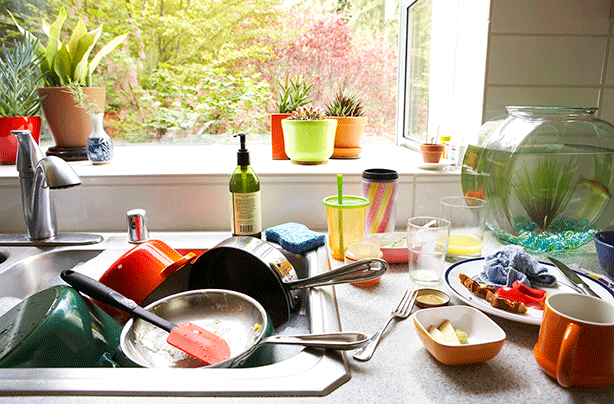
You use it to clean your dishes - but how often do you actually clean the kitchen sink? Rune Sovndahl, co-founder and CEO of Fantastic Services, warned the Daily Mail that your sink is often one of the grimiest places in your home, and is the perfect place for bacteria to thrive.
Parenting advice, hot topics, best buys and family finance tips delivered straight to your inbox.
'Most people don't think to clean it as often as they should. Letting germs fester in your sink could lead to you and your family getting sick as they spread onto any of the items that you put in there,' he says.
'Use mild soap and warm water to clean your sink with a fresh sponge each time you finish washing your dishes' - and whilst you're at it, give your dishwasher a scrub, as Rune points out that this is another of the most neglected areas.
Taking your phone to the toilet
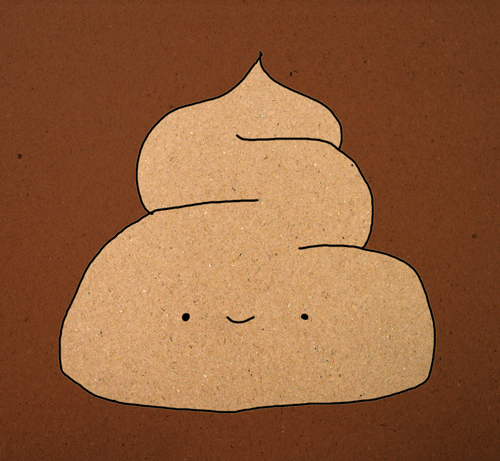
Bad news if you like to browse your social media accounts while 'spending a penny', because experts have revealed you could actually be putting yourself in danger.
Kelly Reynolds, Ph.D., a professor of environmental health, told BuzzFeed that scrolling through your newsfeed while you're on the toilet isn't exactly good for you.
She explains: 'When you flush the toilet, water with faeces and urine sprays about six feet in every direction.
'And the aerosols increase with every flush, so if it's a public bathroom, there is dirty toilet water coating literally everything - especially the toilet paper dispenser, because it's right next to the toilet bowl.'
This essentially means there is a very fine coating of urine and poo on everything in our bathrooms.
Now, we don't know about you but we're seriously questioning where to put our toothbrushes now - because, well, our bathroom isn't long enough to leave them over six feet away from the toilet. And now we have a lot more respect for those tiny (previously laughed at) plastic toothbrush head covers.
Getting germs from urine and faeces on your phone can potentially be very harmful. E coli bacteria is found in poo which can cause food poisoning symptoms such as abdominal cramps and diarrhoea.
Then there's the small matter of holding your phone to your face routinely, sleeping with it close by and keeping it in your warm pockets so the bacteria can just breed.
We think we might just leave our phone outside of the bathroom door next time we need to go.
Choosing bar soap over liquid
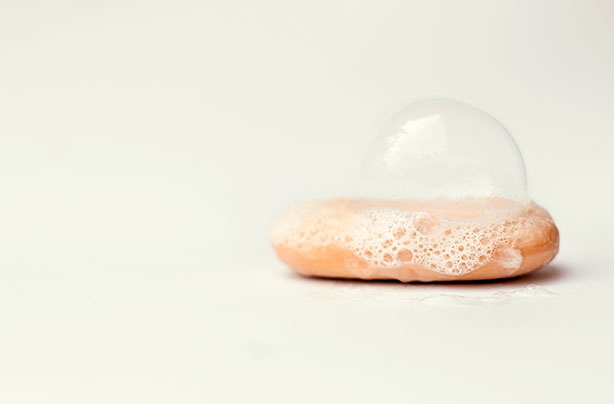
We know, we're as shocked as you are - who would have thought that using soap could be a 'dirty' habit? But new guidelines from the National Institute for Health and Care Excellence (NICE) actually recommend using liquid soap and tepid water for your handwashing needs.
Bar soap, on the other hand, has been known to harbour bacteria on its surface, and when multiple people use the same product, you run the risk of it spreading. Deputy executive of NICE, Professor Gillian Long, explains: 'There are two reasons why we reference liquid soap, rather than bars of soap. Partly it's that all of the evidence we have is about the role of liquid soap. But also it is because intuitively when you see a bar of soap collecting dirt, you don't need a microscope to know that it's not the most hygienic approach.'
Of course, it's probably better to use bar soap than not wash your hands at all, but still, we think we'll be making the switch to a pumpable product pretty sharpish...
Using the self-service checkout
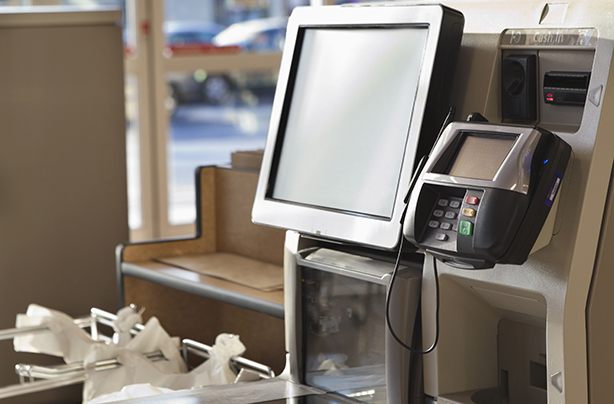
Self-service machines can be a godsend when we don't feel like talking to another human being, or when the queues at the regular checkouts are just too long.
However, if you think about it, those touchscreens get used by a lot of people... and they most likely rarely get cleaned properly, other than being wiped down every so often. In fact, Science of Us reports that 50% of public touchscreens contain faecal matter. So, next time you use a cashpoint or the robot checkout, definitely give your hands a decent wash afterwards!
Touching the handle of the office kettle
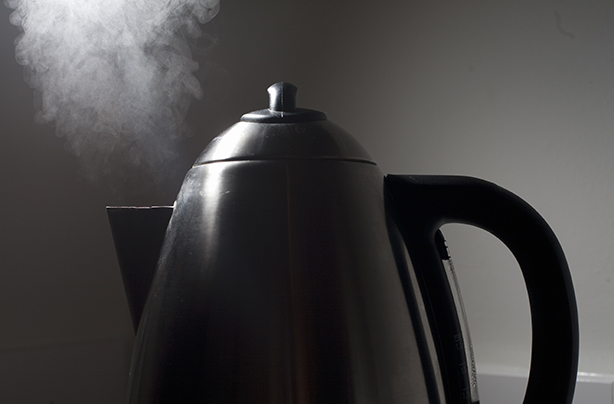
Most people make a beeline for the kettle or coffee pot as soon as they walk into the office, meaning whatever they've been touching beforehand ends up all over the handle.
All the bacteria from public transport poles and money can mean that your kettle's handle can become one of the 50% that contain coliform bacteria, or faecal matter, according to the same Science Is Us survey. Either clean the handle regularly, or wash your hands thoroughly after using.
Pressing lift buttons
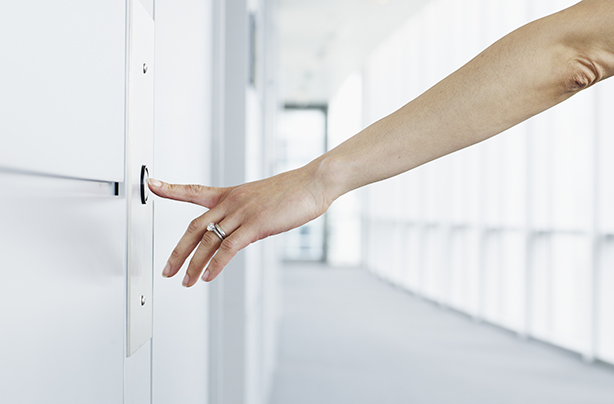
And that's not the only office hazard to watch out for! The ground floor button is the most commonly pressed thing in the lift, as everyone uses it to exit their building. Science of Us reports that parainfluenza, the virus that is to blame for cold-like symptoms, likes to hang out on this button the most. Get your antibacterial gel ready!
Filling your car with petrol
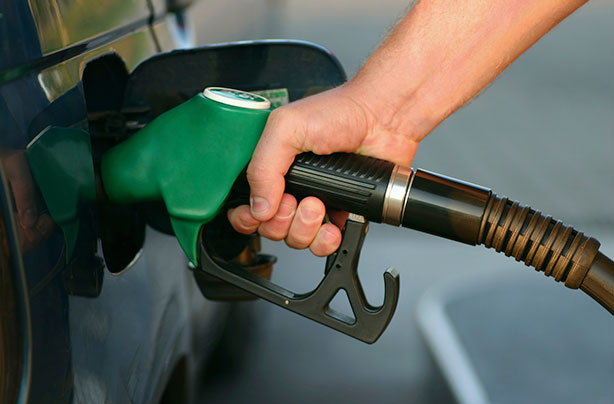
A petrol pump might not be the first thing that comes to mind when thinking about dirty habits, but just imagine how many other drivers have had their hands all over them.
The company Busbud did a study to find out just out how many germs are lingering at petrol stations, and the answer isn't pretty. The results revealed that petrol pumps have more than 11,000 bacteria than a toilet seat.
The study said: 'When we looked at bacteria levels based on colony-forming units (CFU) - the number of viable bacteria cells - on items commonly thought of as dirty, petrol pumps and buttons were the absolute filthiest'.
If that's not gross enough, the buttons on the machine contain 15,000 more germs than your loo. Apparently, as petrol stations are in use pretty much 24-7, it's almost impossible to clean them. But still, we know that filling up your car is pretty essential, so try using a paper towel to grab the handle and washing your hands with anti-bacterial soap afterwards, to reduce bacteria.
Using a loofah
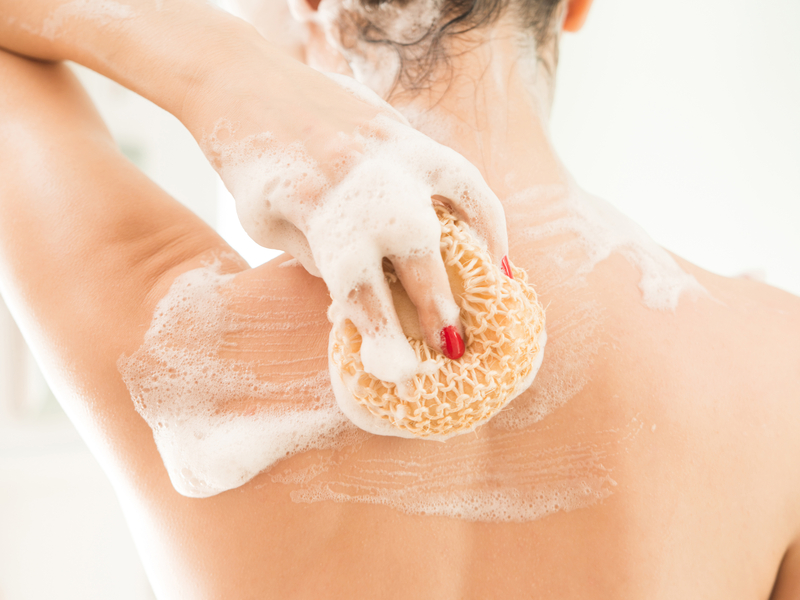
It might seem like you're making yourself cleaner with this handy shower scrubber, but loofahs are actually really gross.
Because of their shape and amount of holes, they're the perfect place for bacteria to breed, as well as building up a nasty collection of your dead skin cells. The warm, damp environment of the shower helps bacteria grow, so let it dry on a windowsill or anywhere else.
If you have a cut anywhere, scrubbing it with a dirty loofah can push bacteria in, possibly creating an infection!
If you can't bear to part with your scrubber, then make sure to chuck it out every two months for plastic ones, and every month for natural ones made from the luffa plant.
Owning a handbag...
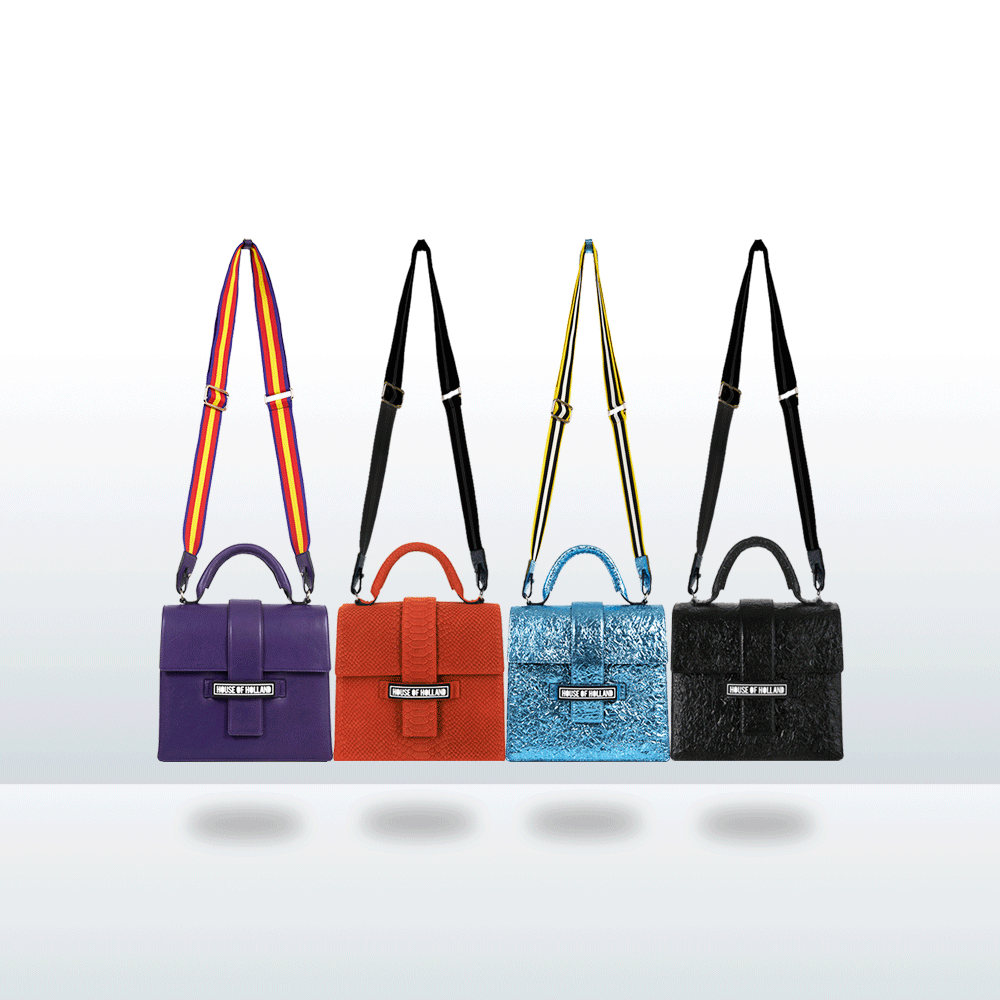
German researchers found that over 10,000 different bacteria are in every few square centimetres of the average woman's handbag - with food scraps, animal urine and rubbish all being main offenders for causing the breeding ground. That lovely fact means they're dirtier than your average toilet seat!
Our hands are also partially to blame for transferring any bacteria we pick up during the day into the depths of our bags. Maybe we'll stick to pockets from now on?
Popping a spot

We know, it's pretty tempting, it's just sitting there staring boldly back at you from your very own face - but popping that spot will do more harm than good.
You see, zits are packed full of pus and white blood cells. Squeezing them will result in you pushing the bacteria further down into your skin, causing further infection and sometimes even scarring. Plus, once you're finished picking away at your face your hands will be covered in spot-spreading bacteria. Not. Good.
Biting your nails

Handily (see what we did there?) located to pick up bacteria, your nails could be hiding a whole smorgasbord of disgusting delights.
Bacteria like Salmonella and E. coli thrive in the tight, warm space between your fingers and nails and then as you nibble away they make their way into your mouth. Delicious, right?
As you bite your nails, the bacteria easily transfers into your mouth and the rest of your body, where they may lead to infections, vomiting and diarrhea. The most common culprits for causing nail-biting bacteria? Changing nappies, bad bathroom hygiene and handling raw meat.
Putting your handbag on your work surfaces
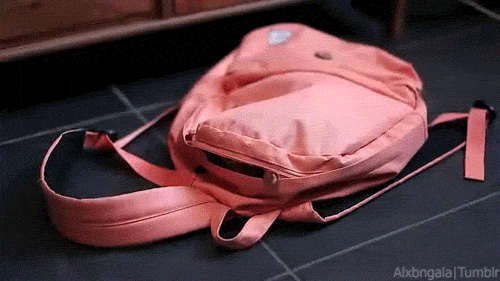
If you think about it, this one makes perfect sense.
Our handbags are put down all the time, beside our desk at work, on the floor at home or on public transport, and even beside the loo in public cubicles. Alarm bells ringing yet? They should be.
Lots of us then go home to pop our bag on the work top which then transfers any bacteria to the area where you prepare food. A US study found that the average handbag contained 10,000 bacteria per square inch and a third were contaminated with faecal bacteria.
Leaving wet towels on the bathroom floor
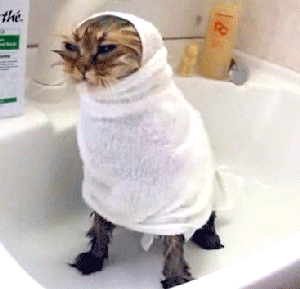
A study by Dr Ackerley from the University of Arizona found towels to be a hot house for, you guessed it, bacteria.
'If you have a heated towel rail or radiator, then that's the place for your wet towel,' says Dr Ackerley.
'If a used towel stays wet and warm on the floor, then bacteria and fungi will grow and the towel will become smelly.'
Fungi doesn't sound like something we want to be drying ourselves with and Dr Ackerley has further advice for any towel sharers out there, saying, 'If you share towels (which isn't advised) then any infection on the towel - such as athlete's foot - can transfer from one member of the family to another. Wash towels above 60 C to kill micro-organisms.' There you go, you've been warned!

Rosie is an experienced food and drinks journalist who has spent over a decade writing about restaurants, cookery, and foodie products. Previously Content Editor at Goodto.com and Digital Food Editor on Woman&Home, Rosie is well used to covering everything from food news through to taste tests. Now, as well as heading up the team at SquareMeal - the UK's leading guide to restaurants and bars - she also runs a wedding floristry business in Scotland called Lavender and Rose.